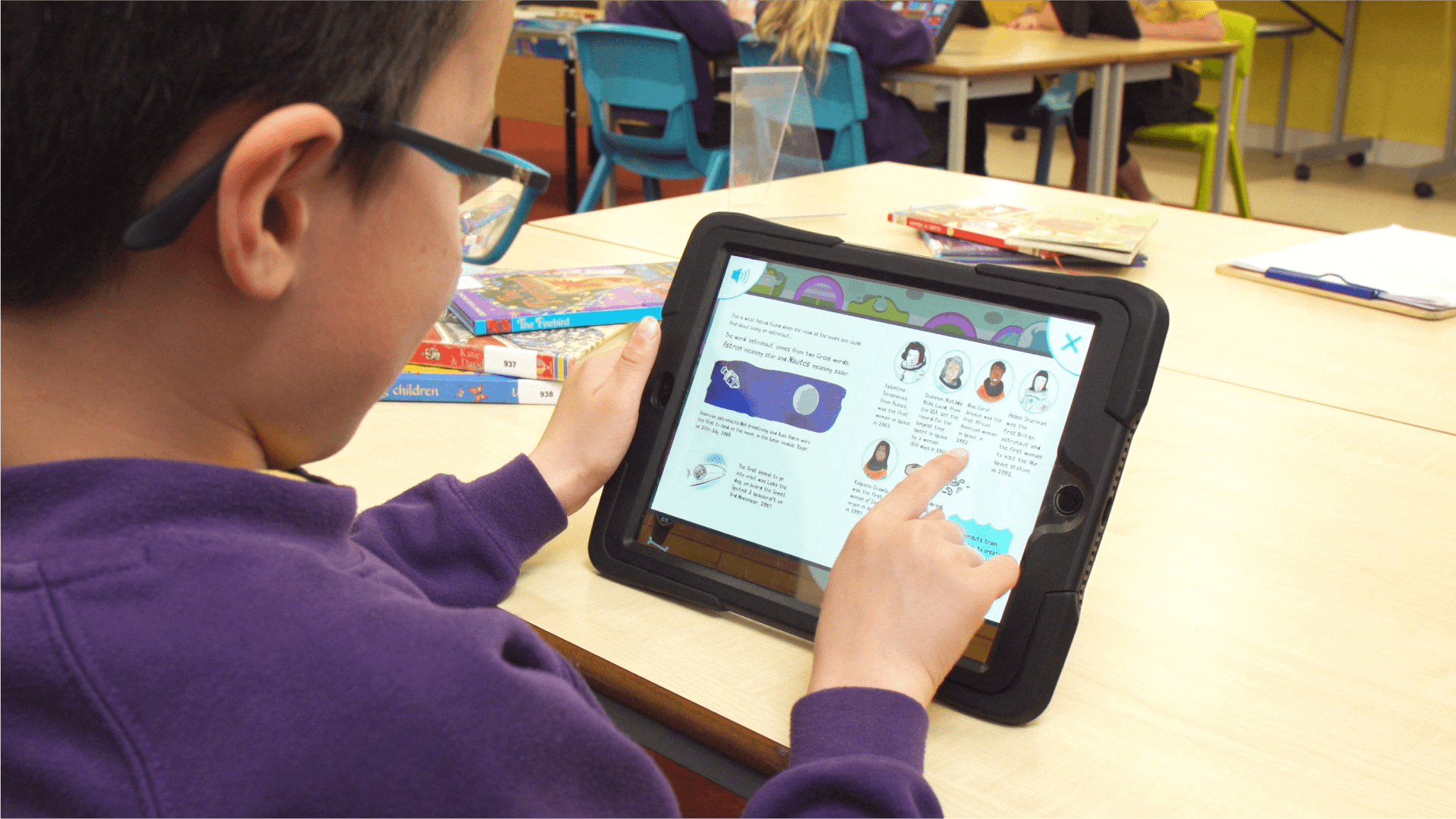The Science of Reading for Children: Unlocking the Power of Literacy
(3 minute read)
Some children appear to ‘magically’ pick up reading where others struggle, especially those with learning difficulties such as dyslexia. So how can we create a strong reading foundation for ALL kids?

Peter Usborne CBE, the founder of Usborne books and Teach Your Monster, believed that a solid foundation in reading is essential for children to grow into healthy adults. His career was dedicated to helping children develop their reading skills and improving access to reading. These principles led to the creation of our very first game, ‘Teach Your Monster to Read’. Key to its development was understanding the science behind how children learn to read.
Researchers and educators have worked for decades to understand the processes that underpin reading. This extensive body of work includes everything from studies on the long-term efficacy of reading instruction methods and interventions, to patterns discovered from brain scans in cutting-edge neuroscience research labs.
The modern ‘Science of Reading’ movement emerged from this foundation of evidence-based learning research. Today’s teachers, parents, and reading experts understand the importance of phonics, decoding and comprehension to improve reading outcomes for every student.
Successful early interventions can start with these building blocks of reading:
Phonemic Awareness: This is the ability to recognize and manipulate individual sounds (phonemes) in spoken words.
Phonics: To comprehend text, children must first understand the relationships between sounds (phonemes) and the written letters that represent them (graphemes). “Decoding” – matching letters to sounds – is what we mean by ‘phonics’.
Vocabulary: A rich vocabulary is crucial for comprehension. Children need to learn and understand the meanings of words to make sense of what they are reading.
Fluency: Fluency involves reading smoothly, accurately, and at an appropriate rate. Fluent readers can focus on comprehension rather than struggling with decoding.
Comprehension: Comprehension is the ultimate goal of reading. It's the ability to understand and make meaning from text. Effective comprehension strategies include making connections, asking questions, and summarizing.
In most UK schools, children are actively taught phonics from an early age. The method is catching on in American Schools as well. (I’m sure that class teachers would be happy to share the systems they use to teach phonics with keen parents!) Many teachers use our Teach Your Monster to Read game in their class because it was designed to help kids practice the foundational skills of phonics and phonemic awareness.
Parents can also support early reading development at home to build understanding and contribute to their child’s success. Here are some key takeaways from the research:
Start Early: Reading aloud to infants and toddlers promotes language development and can help spark an interest in reading.
Create a Literacy-Rich Environment: Surround children with books, magazines, and other reading materials. Encourage reading for pleasure to help it become a part of daily life.
Model Reading: Children are more likely to become readers when they see adults and siblings enjoying books. Be a reading role model.
Tailor Instruction: Recognize that each child is unique and may progress at their own pace. Provide support and help when needed.
Stay Informed: Keep an eye on the latest research and best practices in reading instruction. This knowledge can inform teaching methods and strategies.
The science of reading isn’t fixed — it is constantly updating and uncovering new insights into how children learn to read. But by studying and understanding the processes involved in reading and applying evidence-based strategies, we can empower children to become confident readers. Reading is not just a skill; it's a gateway to knowledge, imagination, and lifelong learning.
References
APnews - An end to the reading wars? More US schools embrace phonics
PBS - Why more U.S. schools are embracing a new ‘science of reading’